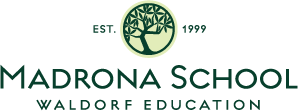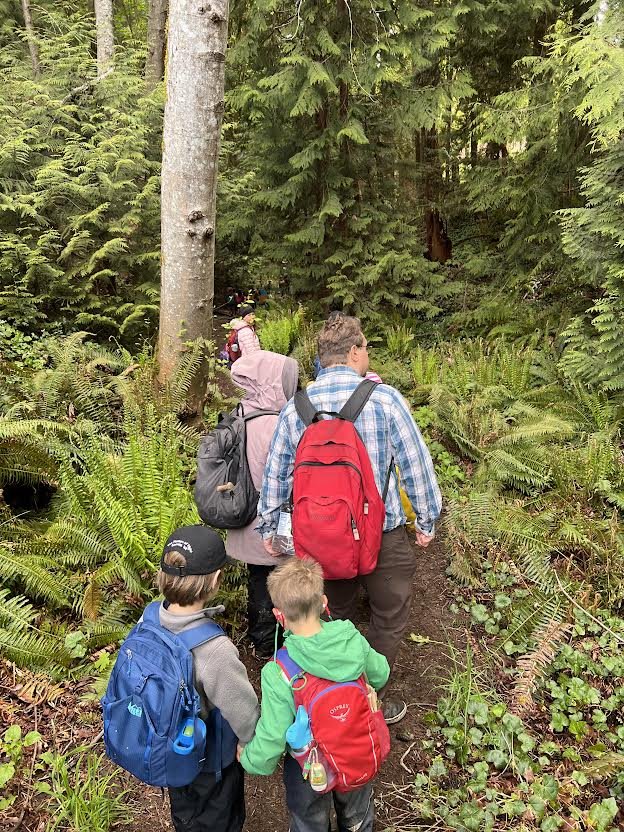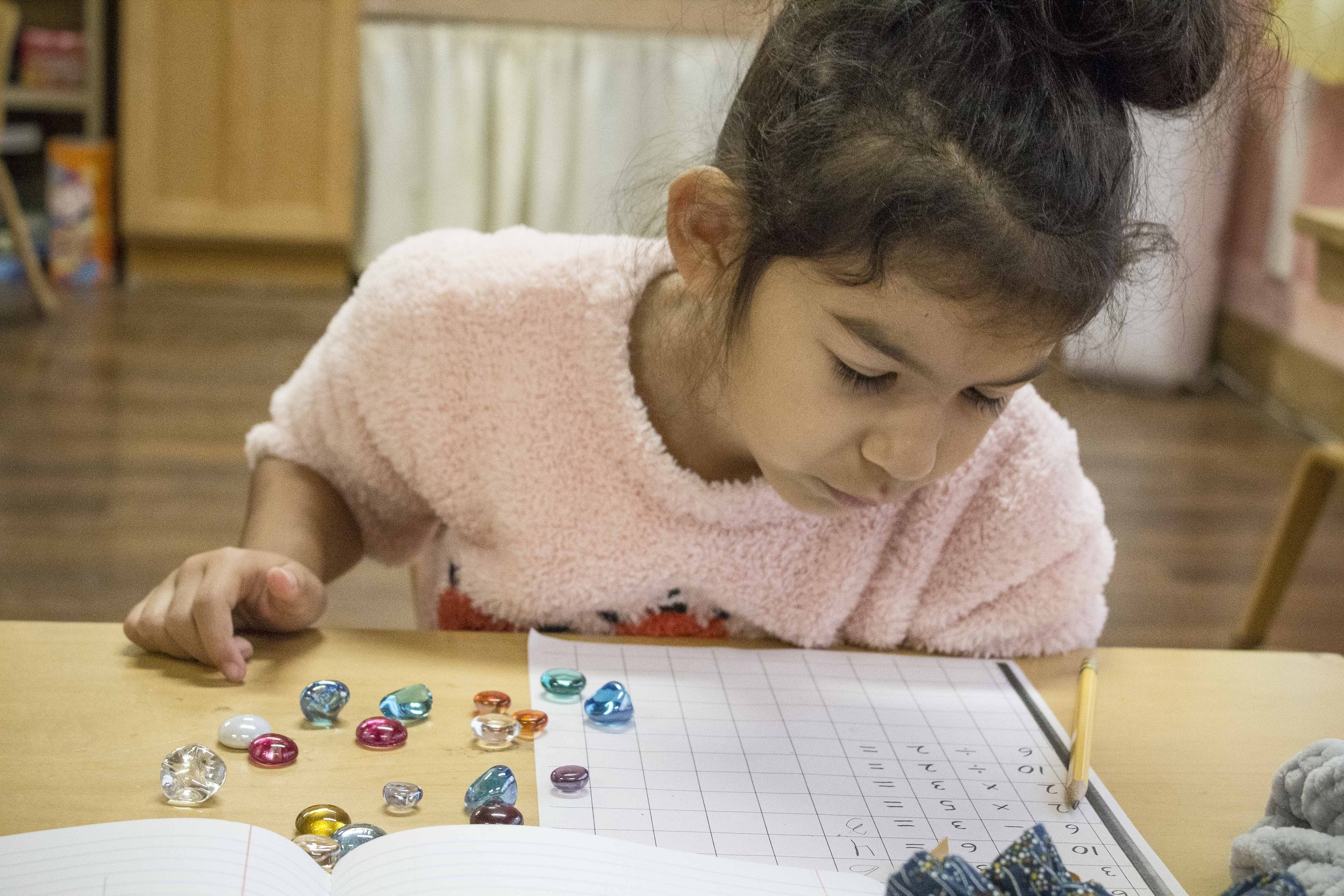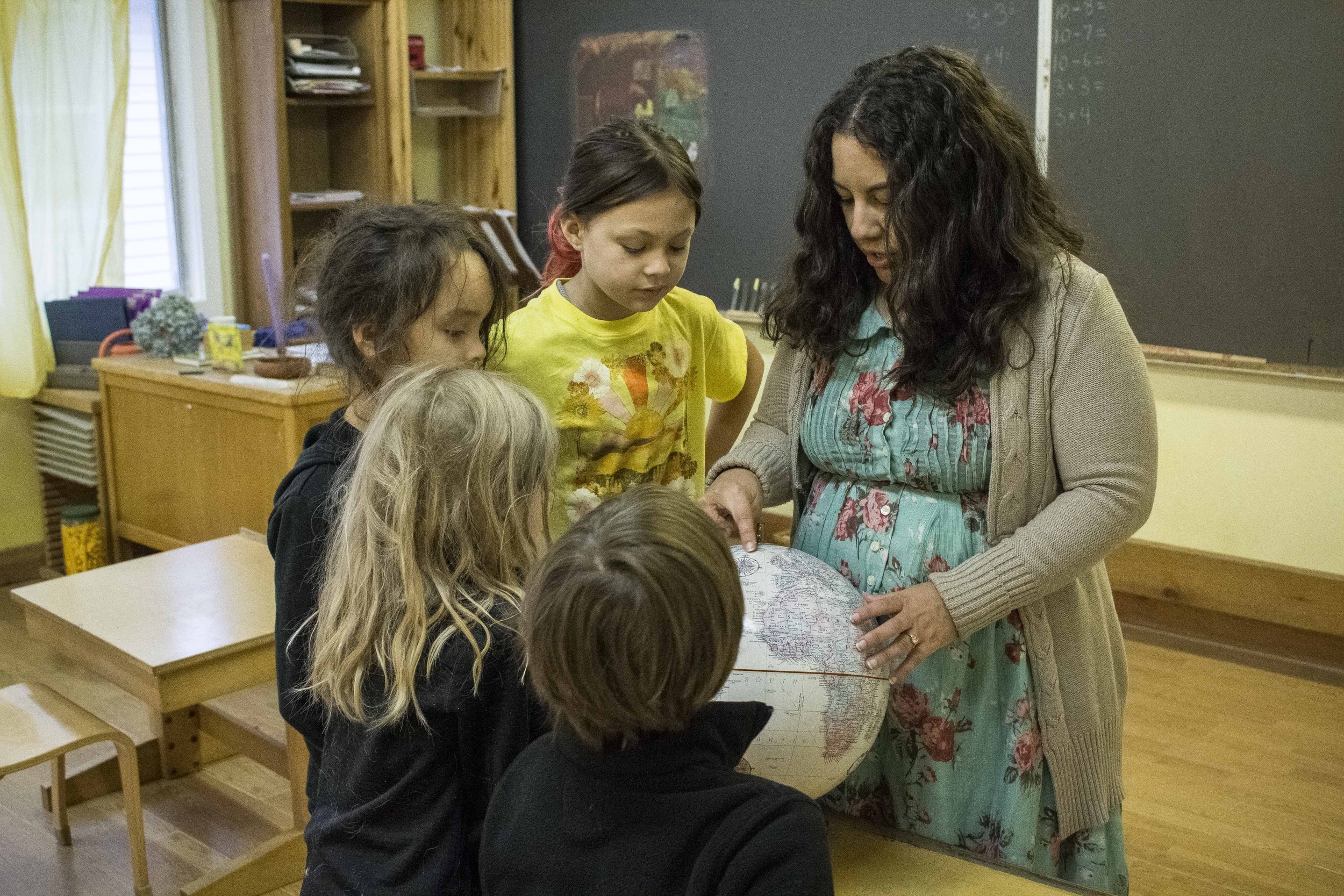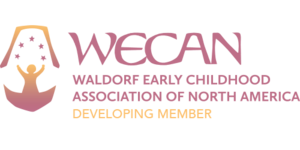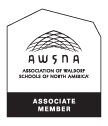“When children relate what they learn to their own experience, they are interested and alive, and what they learn becomes their own. Waldorf schools are designed to foster this kind of learning. ”
The 2025 - 26 Grade School Program
We offer 1st through 6th grade, for children ages 6 to 12.
Monday - Thursdays, 8:30 am - 3:00 pm, with two recess periods each day, rain or shine.
Fridays, 8:30 am - 1:45 pm (partial off campus Exploration Day in the field).
We will offer instruction in three mixed-age classrooms: 1st/2nd, 3rd/4th, & 5th/6th. Detailed age guidelines are available here. Please contact Jocelyn Waite, Head of School, hos@madronaschool.org, for additional information on our mixed-age grades model.
Our grade school curriculum delivers a classical education, teaching the traditional academic subjects (like mathematics, language arts, science) through an interdisciplinary approach that weaves in storytelling, movement, music and the arts every day. The Waldorf curriculum consciously strives to develop the whole child, not just intellectually, but also physically, emotionally, socially and spiritually. When a child graduates from Madrona School, they are well prepared for high school and beyond because they are creative, lifelong learners and they have a healthy sense of themselves in the world.
The school day begins with a two-hour main lesson of academic subjects taught in blocks, shifting focus every three to four weeks. The main lesson provides an uninterrupted period of in-depth learning in the morning when children are most alert and focused. During this main lesson, teachers do not rely on textbooks or worksheets; instead, each student creates a unique lesson book that captures the subjects covered. In 1st and 2nd grades, lesson books contain simple drawings, letters and numbers, and as the students progress through the grades the lesson books become increasingly elaborate, filled with drawings, essays, diagrams, maps and calculations. Parents and children alike treasure these lesson books for years to come.
To read and spell begins with phonological awareness - the ability to hear or perceive a spoken word as a sequence of individual sounds. Early childhood in Waldorf Schools is full of activities that build phonological awareness and oral storytelling skills - a precursor to writing. The training continues in the grades where letters are taught using alliteration and rhyming (activities that build phonological awareness by segmenting words), multi-sensory activities and focusing on the visual features of letters through art.
In addition to this traditional Waldorf curriculum, at Madrona School we also have a reading and writing specialist to continue the students' linguistic training throughout the grades. We work with all students to develop phonological awareness, orthographic mapping and phonetic decoding skills so they can master the task of word recognition and become great readers, spellers and writers. We strive to address the root of reading and spelling difficulties, meeting children at their level and building their skills to mastery.
Following main lesson, subject classes enhance and round out the academic curriculum, including handcrafts and cooperative outdoor games. Other periods, depending on the grade, may include reading practice, math practice, language arts, Spanish, Strings, gardening, practical life skills, modeling, painting and music.
Another unique aspect of a Waldorf elementary school is the strong relationship between a teacher and a class, between a teacher and each student. This long-term relationship allows teachers to know their students deeply and accommodate individual strengths and weaknesses, and it creates a close and secure environment for students. The teacher also works to cultivate a strong sense of class community where students learn to care for one another. Parents also appreciate the sense of partnership that develops when teachers remain committed to their children year after year, through many stages of development.
To find out more, or to arrange a tour of our school, fill out our inquiry form, or call the school office at (206) 855-8041.
During the 2025 - 2026 school year, Madrona School’s grades curriculum includes
Math, building confidence and problem-solving skills by allowing students to discover mathematical principles from the ground up and apply them to increasingly complicated challenges;
Language Arts, introducing language through stories and pictures, exploring and mastering the joy of reading, honing composition skills through the creation of main lesson books, short fiction, persuasive arguments, historical narratives, and other written works;
Science, stirring curiosity and critical thinking, beginning with extensive nature experiences in the early grades and continuing into inquiries in physics and chemistry;
History, from mythologies in the early grades to biographies in the upper grades, studying the history of humankind in relation to our development and how things of the past are reflected in who we are as a culture and as individuals today.
World Language as a window to the world. Regular Spanish classes taught by a native speaker incorporate literature, poetry, and culture to open doors to a more diverse global community.
Music, singing and recorder playing is integrated into daily lessons. In a music program unique on Bainbridge Island, students in grades 3-6 receive regular, intensive instruction in their choice of viloin, viola or cello, with opportunities for performance and group practice.
Visual arts, exploring color, form and perception through daily artistic practice that includes drawing, painting, sculpting and other media;
Handwork, sharing the satisfaction of tangible creation through knitting, sewing and woodwork;
Games/PE, leading games and exercises that move children’s bodies to enhance balance, agility, and spatial awareness.
““I believe in intuition and inspiration. Imagination is more important than knowledge. For knowledge is limited, whereas imagination embraces the entire world, stimulating progress, giving birth to evolution.” ”
